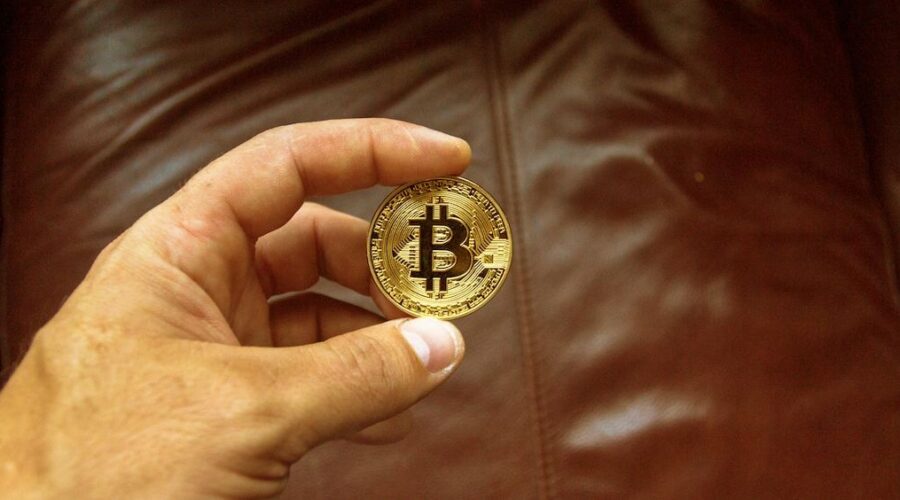Bitcoin is a digital currency used to pay for things over the internet or anywhere where physical money is not accepted. Bitcoin is a completely decentralized currency, which means any individual or company does not own it. It also means that no one controls it, and all transactions are made between users directly, without an intermediary.
Bitcoin was created by Satoshi Nakamoto (a pseudonym) in 2009 as open-source software. Since then, other developers have contributed to the project, which has grown in popularity worldwide as an alternative currency. Bitcoin can be used to buy items online and in physical stores that accept it as a payment method.
It can be exchanged for other currencies at special ATMs, or you can use services like Local Bitcoins to meet people in person to trade cash for bitcoins. The price of Bitcoin fluctuates frequently, so you may get more or less when you convert your local currency into or out of bitcoins.
How To Acquire Bitcoin
There are several ways you can buy Bitcoin. You can buy it from an exchange or accept it for goods, services, or mine.
1. An Exchange
You can exchange your local currency, like the U.S. dollar, for bitcoins at a Bitcoin exchange. The most popular exchanges are Coinbase, CoinMama, Coinhouse, BitPanda, and Gemini. To buy bitcoin using an exchange, you must be verified with the exchange and link your bank account or credit card to your account.
Buying bitcoins through an exchange is the easiest way to obtain them, but it can often take several days for the transaction to process. This is due to the exchange fraud prevention measures and anti-money laundering laws. Once you have purchased some bitcoins, they will be stored in your digital wallet on the exchange itself or with a third-party provider that works with the exchange.
There is some risk associated with leaving coins on an exchange for a long period, but most will let you set up 2-factor authentication (2FA) so that even if someone else obtains your login information, they still cannot access your account without the 2FA code being entered as well.
2FA codes are generated by a special app or physical device such as Google Authenticator or Authy that generates a new code every 30 seconds and is only available for use when you enter it into the website or app after logging in with your username and password.
2. Accept It For Goods or Services
Many businesses now offer the option to pay in bitcoin. There are two ways for this to happen. The first is that the business adds a Bitcoin payment option to its invoicing system or the business’s shopping cart system, which allows customers to send a certain amount of Bitcoins and have it converted into fiat currency in their bank account at the end of the transaction.
The second way this can happen is that the customer pays directly with their Bitcoin wallet. This is becoming more common with services such as BitPay. You can pay any business worldwide directly with your bitcoin wallet by using a unique address that identifies your transaction.
3. Mining
The process of mining bitcoins is extremely complex and requires expensive equipment called ASICs (Application Specific Integrated Circuit). These ASICs have been developed specifically for mining bitcoins. They cannot be used for anything other than mining bitcoins and other cryptocurrencies because they use too much electricity compared with standard computers.
Mining involves compiling recent transactions into blocks and trying to solve a computationally difficult puzzle. The first miner who solves the puzzle gets rewarded with new bitcoins in an amount roughly equal to their reward of processing power. While mining is technically still possible on a home computer, the amount of electricity consumed makes it extremely uneconomical unless using renewable energy sources or very efficient cooling.
Mining is an important part of the bitcoin ecosystem since it allows the currency to be distributed and not controlled by the government or any particular person. Mining is also necessary to protect against fraudulent transactions, like double spending, for example, when a person spends money in two different places with two different coins. Mining also creates new bitcoins at a predictable rate that allows the market to control their supply, unlike currencies like gold or silver, which can be created in any arbitrary amount.
4. Peer-to-peer Trading Platform
A peer-to-peer platform is a marketplace where bitcoin buyers and sellers come together to trade with one another. The Bitcoin-QT client (the most popular bitcoin wallet) can be used as a peer-to-peer platform.
A significant difference between the two is that on the bitcoin network, all transactions are recorded on a public ledger, while in a p2p exchange, only the transactions between users and not for buying/selling bitcoins are recorded. While the bitcoin network requires users to broadcast all transactions on the network, p2p exchanges record only those transactions that are relevant to each user.
Risks Associated With Bitcoin
As a decentralized currency, Bitcoin is not regulated by any government or entity. This means that there is no consumer protection against fraud or theft. For example, the Mt. Gox exchange collapse led to the loss of thousands of bitcoins and the bankruptcy of this large international exchange. While this was not due to any fault in bitcoin, it shows that consumers need to be careful as they would with their traditional currencies.
With a centralized currency, governments can shut down the exchange or ban a particular currency if they feel it is being used for illegal activities (such as funding terrorism). With Bitcoin, this would be much harder to do, and there is a high probability that it would cause significant disruption in the economy and financial markets. This could happen if governments banned bitcoin exchanges or tried to stop people from mining bitcoins
